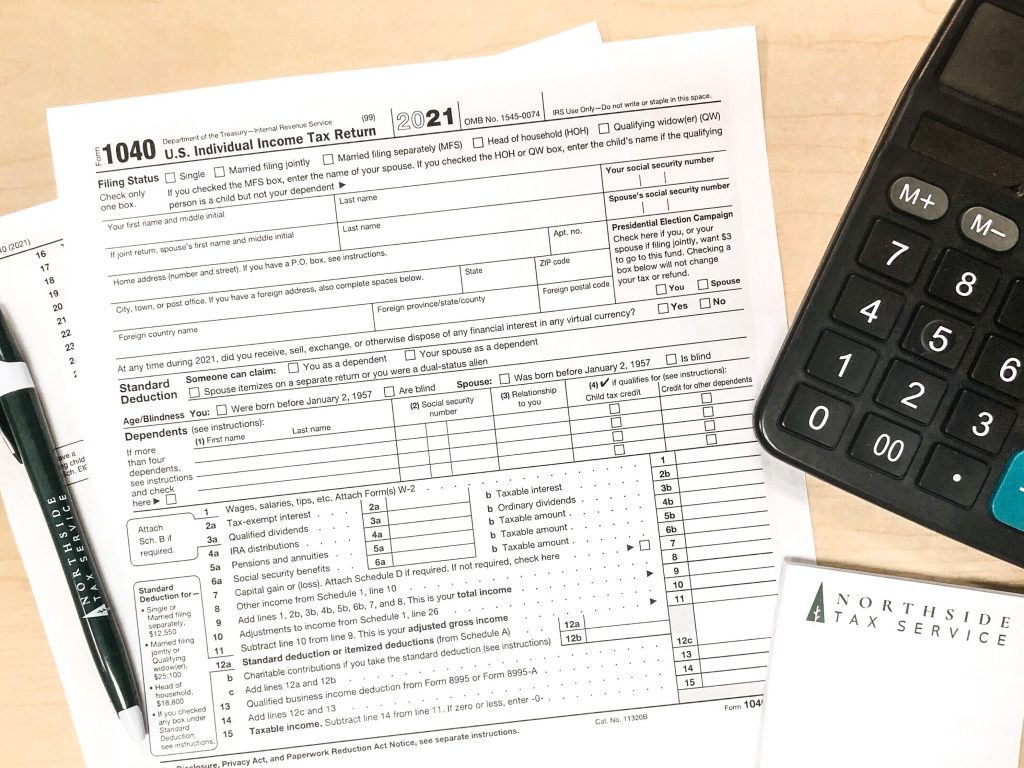Submitted by Northside Tax Service
Tax season has officially begun! This time of year can be stressful, but having all your tax documents ready, educating yourself about tax changes, and getting help from a reputable and experienced tax preparer can help ease the burden.
Gather your tax documents as they arrive
One of the most important things when filing your taxes is making sure you have all the necessary information and documents to file. Many taxpayers will be receiving their tax documents this month. The most common tax documents include:
- W-2s for wages and tips
- W-2G for gambling winnings
- 1099-G for certain government payments such as unemployment
- 1099-K for gig workers such as Uber and Lyft
- 1099-NEC for nonemployee compensation
- 1099-MISC for miscellaneous income
- 1099-INT for accumulated interest of at least $10
- 1098 for mortgage interest
- 1098-T for college tuition expenses
- 1095-A for health insurance from the marketplace
- Letter 6475 regarding your 2021 Economic Impact Payment (stimulus check)
- Letter 6419 regarding your 2021 Advance Child Tax Credit payments
There are many more forms and documents that you may receive, so make sure to keep an eye on your mail and email. If you file without reporting all your income, you may need to file an amended tax return or face penalties and interest. Mistakes on your tax return may also delay your refund.

What to know for filing in 2022
Due to the ongoing pandemic, temporary changes have been implemented that may help you minimize your tax liability and get a bigger refund. Here are some of the changes that may benefit you this year:
Recovery Rebate Credit: If you didn’t receive the third stimulus payment that was issued March through December last year, you may be able to claim the Rebate Recovery Credit on your tax return. The IRS will send you Letter 6475 to let you know if you are eligible to claim this credit.
Advance Child Tax Credit Payments: The IRS began sending out advances on the Child Tax Credit beginning in July last year. If you received payments, you will be getting Letter 6419 to help you reconcile these payments on your tax return.
Child and Dependent Care Credit: For 2021, the Child and Dependent Care Credit is fully refundable and allows for a credit of up to 50% of your qualifying expenses. The maximum credit amount for one qualifying person is $8,000 and $16,000 for two or more qualifying persons.
Earned Income Credit: The EITC provides a tax break for low- to moderate-income workers. This credit was expanded last year by lowering the minimum age from 25 to 19 (18 for qualified homeless or former foster youth and 24 if a student for at least 5 months of the year), eliminating the maximum age limit of 65, and increasing the maximum credit amount for childless workers.
Charitable Donations: Taxpayers taking the standard deduction who donated cash to a qualifying organization may be able to deduct up to $300 for individuals and $600 for married filing jointly. Also, those who itemize may be able to deduct up to 100% of their Adjusted Gross Income this year, up from the usual 20% to 60%.

Need help filing your taxes?
The filing deadline is April 18 this year, but it’s advantageous to begin filing your taxes once you receive all your tax documents so you aren’t rushing at the end to get it finished.
Working with a knowledgeable and experienced tax preparer can help you file an accurate tax return and claim the credits and deductions available to you. If you’re on the lookout for someone to help you file your taxes this year, Northside Tax Service has a qualified team of tax preparers.
Northside Tax Service offers drop-off/curbside service, online tax prep, and in-office appointments. Give them a call at 360.922.0235 or visit their website, www.nstax.net, to see if they’re a good fit for your needs.









































